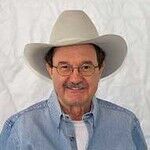I was raised in one of those families in which the phrase, "I gotta work," stopped all conversation.
So in 1964, when Pop, who was a bartender, said, "I gotta work Christmas Eve," I shut up. I was 7-years-old.
We lived in a rented two-story white house with a sagging front porch close to the red brick center of a sagging Massachusetts mill town. My mother worked in a bank. My mother's mother lived with us. Her pension was $60 a month.
My father would come home late at night and fall asleep on the couch in his work clothes: black dress pants, a white shirt and hard black shoes. On the coffee table would be his wallet, his watch, his initial pinkie ring and a pool of silver, his night's tips. With a shot of whiskey costing fifty cents, people didn't tip with paper money. In the morning, my mother would take my fifteen cents milk money from the pool of silver.
On the Christmas Eve my father worked, I went out on the porch about 5 p.m., after dark, and sat with my boxer dog, Joey. A boxer dog is a good companion for an unhappy kid because a boxer's large, wet eyes make him look sorrowful, so it seems as if he feels bad, too. A man who drank at the bar where my father worked gave him the dog because he was violent and too high-tempered to be a show dog. But he was very gentle with us and particularly gentle with my grandmother who, at 63, was dying of heart trouble.
And a cab, a white cab, pulled up in front of our house and my father got out of the back seat, slammed the door, threw the driver some money and walked in long strides up to the porch.
He hugged me against his scratchy black wool overcoat that always smelled like sour cigarette smoke, urinal cakes and beer, and we went inside where he and my mother kissed for a little longer than they usually did when he came in the house.
Other than the day of my wedding, I've never had a moment of such pure, crystal happiness as I had when my father got out of that cab.
Years later, my father told me he had two drinkers in the bar when he spoke up for Christmas.
"Look, you guys," he told his two customers, both of them drunks from the immediate neighborhood. "Maybe you don't have anywhere to go on Christmas Eve, but I do. I gotta wife and a kid at home. I'm closing. Go somewhere else."
They protested.
"Screw it," my father said. "And if you tell the owner I closed early, you're not gonna like what's gonna happen to you."
Pop locked the doors, poured a beer and wondered if he'd lost his job on Christmas Eve.
"So, the owner of the joint called me to ask how business was," Pop would tell me years later. "I told him, 'You're not gonna believe this, but there's nobody in here. I'm all alone.'"
"What the hell, Gene," the owner said. "We're not even paying the light bill. Close up and go home."
It was a Christmas hustle.
I don't remember what I got for Christmas that year or the year before or the year after. I remember my father getting out of the cab.
That was 50 years ago.
So don't worry too much about what you're getting your kids for Christmas.
That's not what they're gonna remember.
To find out more about Marc Munroe Dion and read features by other Creators Syndicate writers and cartoonists, visit www.creators.com. Marc Munroe Dion's Kindle books, "Mill River Smoke" and "Between Wealth and Welfare," are available on Amazon.com






View Comments